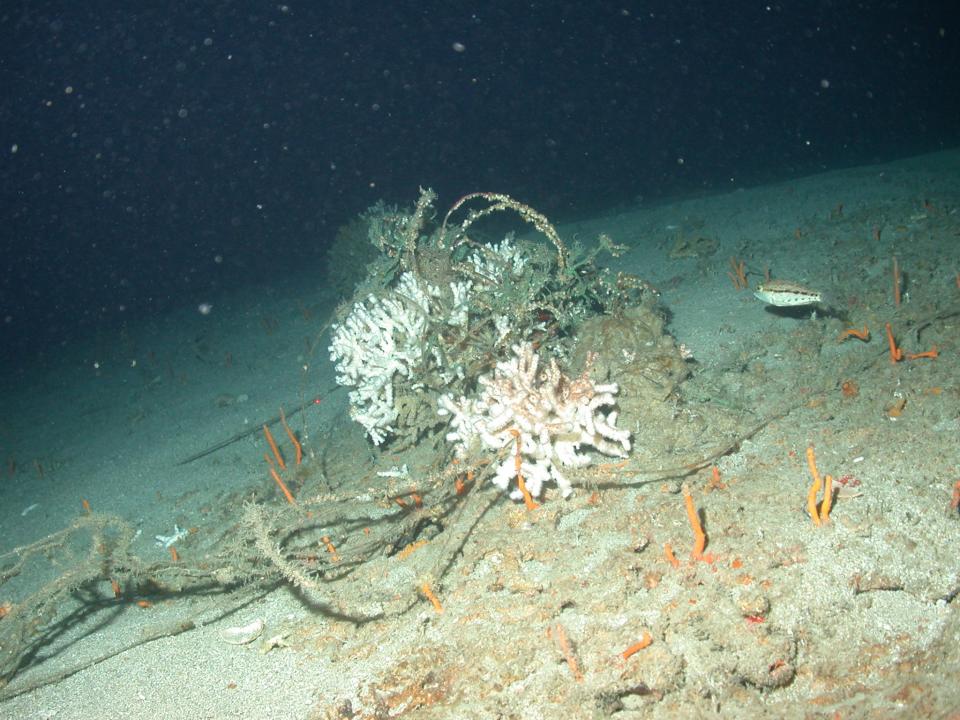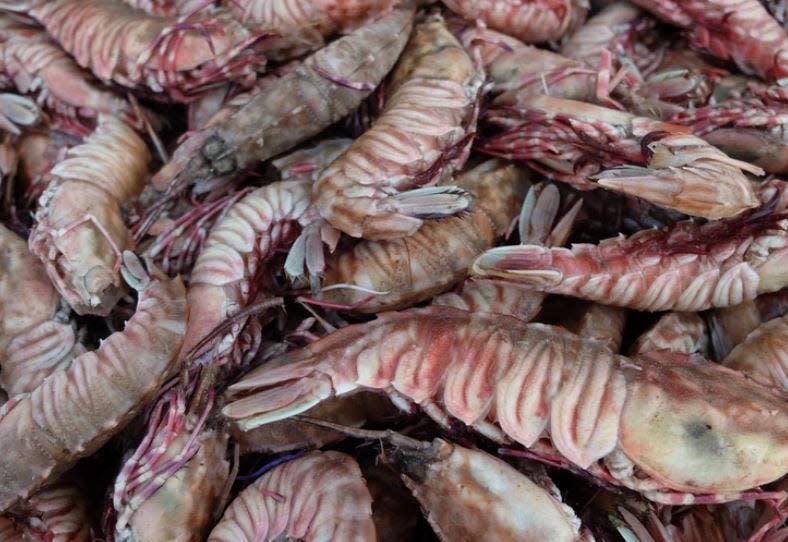Will SAFMC open oculina coral reef to shrimp trawling? Environmentalists oppose plan
Will an area of ocean bottom offshore of Florida's Atlantic coast soon be reopened to shrimp fishers? That's what's expected to be decided Thursday during a meeting of the South Atlantic Fishery Management Council's Habitat Protection and Ecosystem Based Management Committee.
They will vote on a motion to open a 22-square-mile area of sea floor about 20 miles offshore of St. Lucie, Indian River and Brevard counties. The area is believed to be an area where rock shrimp, and several other varieties of shrimp, can be harvested for sale in Florida seafood markets and restaurants.
Commercial fishers say the area, closed to shrimp trawling since 2014, is ripe for productive fishing. Conservationists disagree, saying the area needs to remain closed to protect the slow-growing deepwater oculina coral from fishing practices that could harm the coral.

In September 2021, the council asked the National Marine Fisheries Service to expand the fishing grounds near the Northern Extension of the Oculina Habitat Area of Particular Concern through Amendment 10 of the Fishery Management Plan for Coral, Coral Reefs and Live Hard Bottom Habitat.
Regional Administrator Andy Strelcheck denied the request in August 2022, citing three reasons:
It did not adequately address essential fish habitat.
A required bycatch practicality study was not completed.
It did not meet other objectives that are required when such a request involves another fishery management plan.
In other words, oculina coral, also known as ivory tree coral, lives 150-300 feet deep in the water column, which is as deep as sunlight can reach. Rock shrimp trawlers drag heavy fishing nets along the sea bottom, which can damage the coral or disturb silt that then settles on and smothers the coral, conservationists say.

But in September, a coral modeling study was provided to the council predicting the distribution of deepwater coral colonies along the Atlantic Coast between Florida and North Carolina by Jeff Buckel, a researcher with North Carolina State University. It showed that fishery management decisions could use the model to predict where productive fishing could take place without damaging coral.
In September 2022, the Southeastern Fisheries Science Center conducted a visual survey with underwater cameras and electronics to measure the topography of the sea floor in the proposed fishing area. The study did not rule out the possibility of oculina coral colonies being present, but predicted the likelihood of live coral being in the area to be "very low."
Watery grave: Found: Florida shipwreck lost in 1906 hurricane in Biscayne Bay had Treasure Coast ties
Will it help? C-44 Reservoir: Five misconceptions about the $339 million Everglades restoration project
Habitat and Ecosystem committee members will vote Thursday on whether to submit the request to open the area to fishing again, agency spokesperson Kim Iverson said. The request will then go before the National Marine Fisheries for review. A decision likely will be announced in 6-8 months.
"That small piece of bottom had been trawled by the rock shrimpers for more than five decades (so shrimping) will not harm the reef. They recent research found zero evidence that coral had established within the proposed area during the eight years it had been closed to trawling," said Laurilee Thompson of Titusville, owner of Dixie Crossroads restaurant and a member of the Habitat and Ecosystem committee. "That piece of bottom was closed due to staff error. We were told that the situation would be corrected in a new amendment. It took eight years for that to take place."
The Conservation Alliance of St. Lucie County opposes the measure.
"We urge NOAA to deny the request," President Shari Anker wrote in a letter submitted as part of the open public comment section. "Corals are already suffering from climate change, warming waters, acidification and land-sourced pollution. Rock shrimp trawling is highly destructive to the oculina coral bank."
Ed Killer is the outdoors writer for TCPalm. Email him at ed.killer@tcpalm.com.
This article originally appeared on Treasure Coast Newspapers: Will Florida OK shrimp trawling on oculina coral reef off Port Canaveral?

